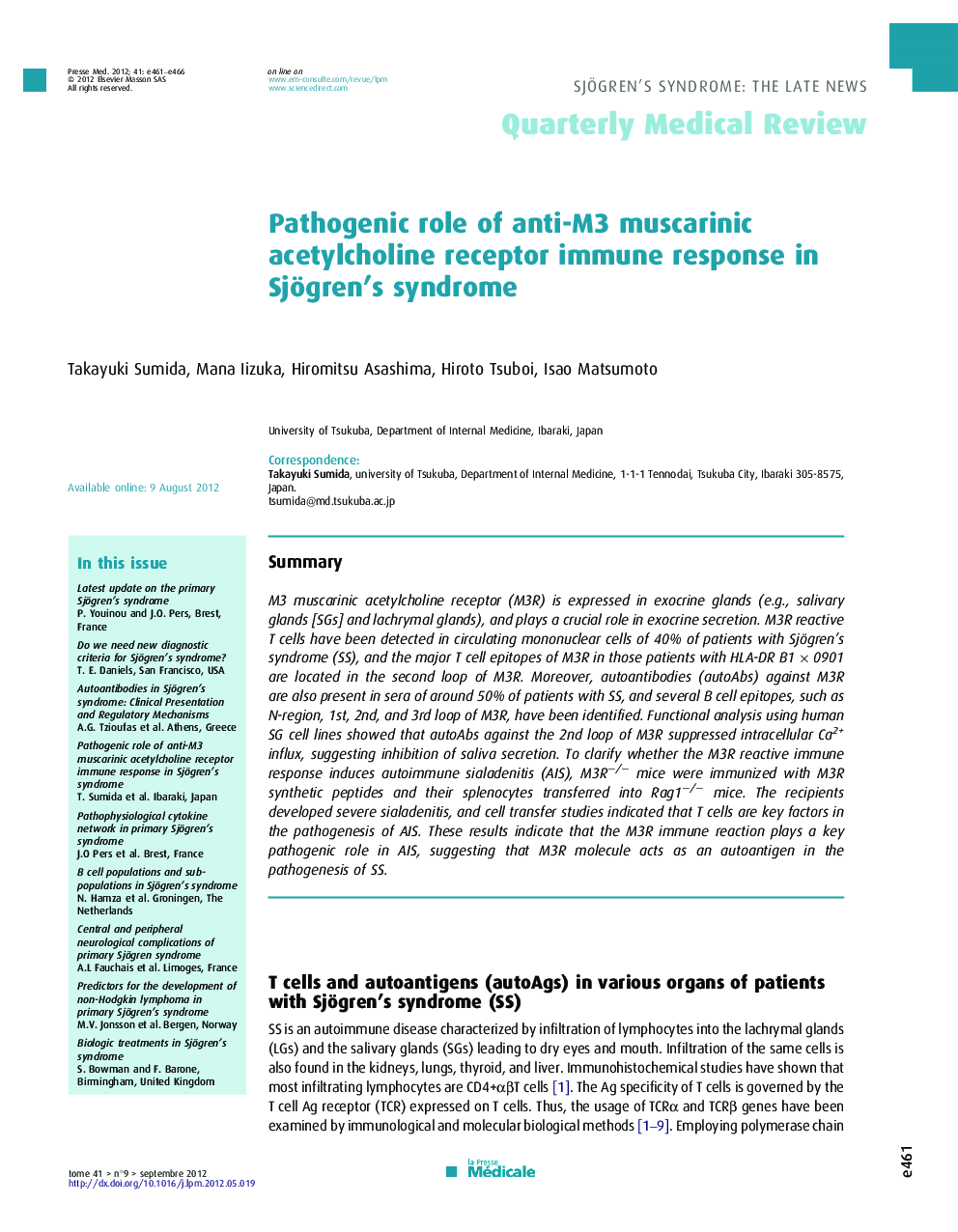| Article ID | Journal | Published Year | Pages | File Type |
|---|---|---|---|---|
| 3820223 | La Presse Médicale | 2012 | 6 Pages |
SummaryM3 muscarinic acetylcholine receptor (M3R) is expressed in exocrine glands (e.g., salivary glands [SGs] and lachrymal glands), and plays a crucial role in exocrine secretion. M3R reactive T cells have been detected in circulating mononuclear cells of 40% of patients with Sjögren's syndrome (SS), and the major T cell epitopes of M3R in those patients with HLA-DR B1 × 0901 are located in the second loop of M3R. Moreover, autoantibodies (autoAbs) against M3R are also present in sera of around 50% of patients with SS, and several B cell epitopes, such as N-region, 1st, 2nd, and 3rd loop of M3R, have been identified. Functional analysis using human SG cell lines showed that autoAbs against the 2nd loop of M3R suppressed intracellular Ca2+ influx, suggesting inhibition of saliva secretion. To clarify whether the M3R reactive immune response induces autoimmune sialadenitis (AIS), M3R−/− mice were immunized with M3R synthetic peptides and their splenocytes transferred into Rag1−/− mice. The recipients developed severe sialadenitis, and cell transfer studies indicated that T cells are key factors in the pathogenesis of AIS. These results indicate that the M3R immune reaction plays a key pathogenic role in AIS, suggesting that M3R molecule acts as an autoantigen in the pathogenesis of SS.
